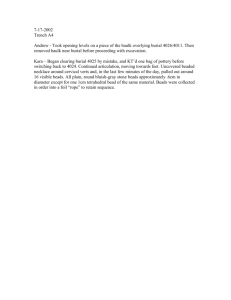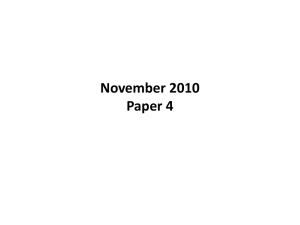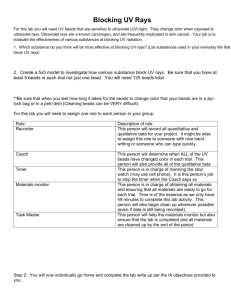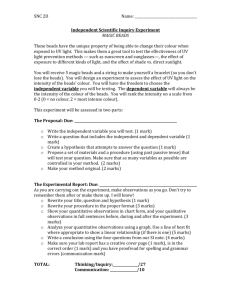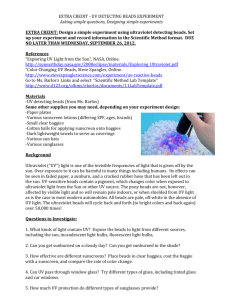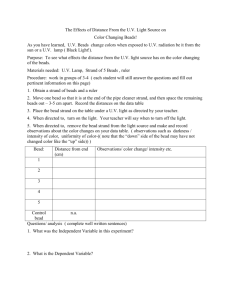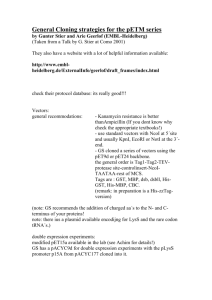Method of Test for Glass Beads (740.10 and Special Gradations)
advertisement
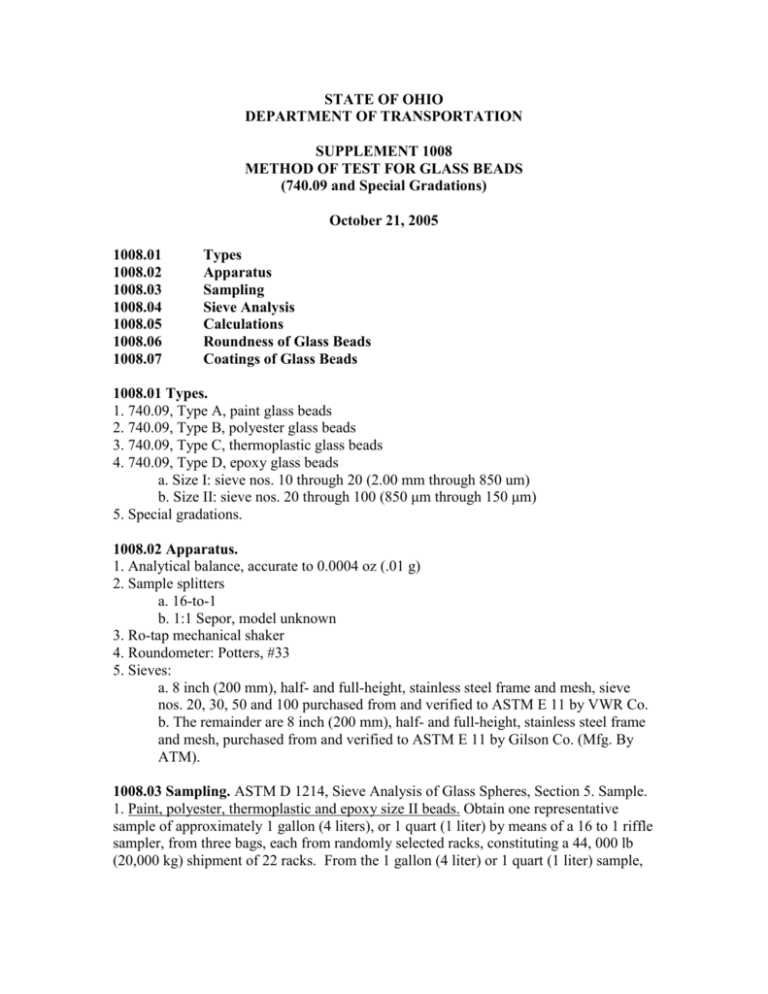
STATE OF OHIO DEPARTMENT OF TRANSPORTATION SUPPLEMENT 1008 METHOD OF TEST FOR GLASS BEADS (740.09 and Special Gradations) October 21, 2005 1008.01 1008.02 1008.03 1008.04 1008.05 1008.06 1008.07 Types Apparatus Sampling Sieve Analysis Calculations Roundness of Glass Beads Coatings of Glass Beads 1008.01 Types. 1. 740.09, Type A, paint glass beads 2. 740.09, Type B, polyester glass beads 3. 740.09, Type C, thermoplastic glass beads 4. 740.09, Type D, epoxy glass beads a. Size I: sieve nos. 10 through 20 (2.00 mm through 850 um) b. Size II: sieve nos. 20 through 100 (850 μm through 150 μm) 5. Special gradations. 1008.02 Apparatus. 1. Analytical balance, accurate to 0.0004 oz (.01 g) 2. Sample splitters a. 16-to-1 b. 1:1 Sepor, model unknown 3. Ro-tap mechanical shaker 4. Roundometer: Potters, #33 5. Sieves: a. 8 inch (200 mm), half- and full-height, stainless steel frame and mesh, sieve nos. 20, 30, 50 and 100 purchased from and verified to ASTM E 11 by VWR Co. b. The remainder are 8 inch (200 mm), half- and full-height, stainless steel frame and mesh, purchased from and verified to ASTM E 11 by Gilson Co. (Mfg. By ATM). 1008.03 Sampling. ASTM D 1214, Sieve Analysis of Glass Spheres, Section 5. Sample. 1. Paint, polyester, thermoplastic and epoxy size II beads. Obtain one representative sample of approximately 1 gallon (4 liters), or 1 quart (1 liter) by means of a 16 to 1 riffle sampler, from three bags, each from randomly selected racks, constituting a 44, 000 lb (20,000 kg) shipment of 22 racks. From the 1 gallon (4 liter) or 1 quart (1 liter) sample, obtain an approximately 1.76 oz (50 gram) test sample by means of a sand splitter. Use the test sample on an as-received basis, unless noticeably damp. 2. Epoxy size I beads and gradations coarser than thermoplastic beads. Obtain one representative sample of approximately 1 gallon (4 liters), or 1 quart (1 liter) by means of a 16 to 1 riffle sampler, from two bags, each from randomly selected racks, for each 10,000 lbs.(4500 kg) shipment of five racks. From the 1 gallon (4 liter) or 1 quart (1 liter) sample, obtain an approximately 1.76 oz (50 gram) test sample by means of a sand splitter. Use the test sample on an as-received basis, unless noticeably damp. 1008.04 Sieve analysis. 1. Place the test sample on the top-most sieve of the stack and put the sieve stack in the Ro-Tap. Mechanically sieve for 15 minutes. 2. Proceed as in ASTM D 1214, Section 7.1.2. 3. Weigh and record the weight of the contents of each sieve to the nearest 0.0004 oz (0.01 gram). 1008.05 Calculations. 1. Paint and polyester beads: calculate the total percent passing each sieve, expressed to the nearest 0.1 percent. 2. Thermoplastic and epoxy sizes I and II: calculate the total percent retained for each sieve, expressed to the nearest 0.1 percent. 3. Special: as required to the nearest 0.1 percent. 1008.06 Roundness of Glass Beads. ASTM D 1155, Procedure A, shall be utilized to determine compliance. 1. In all cases, final inspection of the rounds and unrounds by microscope will show 95+% separation if properly separated. 2. Paint and polyester beads: only the contents of the No. 50 & 100 sieves (300 μm & 150 μm) are tested. - nominal elevation of the vibrating table in order to properly separate the beads. 3. Thermoplastic: only the contents of the No. 40 & 50 sieves (425 μm & 300 μm) are tested. - nominal elevation of the vibrating table: sieve no. position as designated by the Roundometer. 4. Epoxy: size I and size II - nominal elevation of the vibrating table in order to properly separate the beads. 5. Special gradations: only the contents of the sieves are tested which contain the majority of the mass of beads. -elevation of the vibrating table: sieve no. position as designated by the Roundometer. 1008.07 Coatings of Glass Beads. 1. AASHTO M 247 shall be used to determine compliance. a. Paint, moisture-proof, section 4.5. b. Polyester, 50:50 mix of moisture-proof: floatation, section 4.6, only. 2. Thermoplastic, epoxy and special beads as required.
